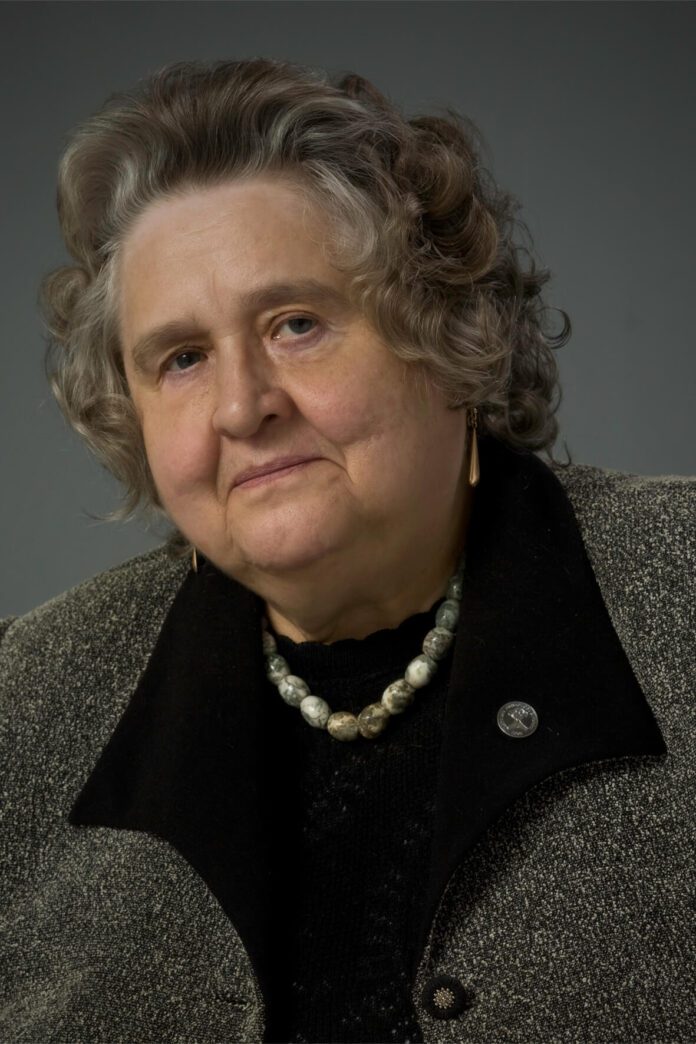Latvian and Baltic numismatist society mourns the recent loss of Tatjana Berga on October 2, 2020. Tatjana was a senior specialist at the Institute of Latvian History and The Museum of the History of Riga and Navigation, a dedicated and great personality, one of the most productive and versatile researchers of her generation.
She was born on December 9, 1944, in Russia. Soon after the end of the Second World War with her family she settled in the then occupied Latvia. In 1972 she graduated from the University of Latvia with the degree in history. Tatjana continued her studies in St. Petersburg in the speciality of numismatics, supervised by Russian numismatist Vsevolod Potin (1918-2005), a well-known curator of the monetary cabinet of Hermitage Museum. In 1980 Tatjana defended her dissertation thesis “The monetary finds in the 10th-12th century archaeological material of Latvia”.
The Beginning of an Outstanding Career
Tatjana conducted her first independent archaeological investigations in 1979. In years to come more than a dozen sites in Riga, Jelgava, Latgale (the region in Eastern Latvia) were excavated under her leadership while the main research area remained Valmiera. In 2018 her last book “Valmieras vecpilsētas arheoloģija” (The Archaeology of Valmiera old town) was published, which is the most detailed overview of this Northern Latvian town. Tatjana’s archaeological work, without a doubt, is of lasting importance. However, in the last decade, she worked in close cooperation with a trusted colleague Inita Dzelme who assisted in many of her fieldworks and publications.
Tatjana’s appraisal as an expert mainly rests upon her studies in numismatics. Tatjana had a special interest in hoards and collections. Countless municipal and regional museum collections and hoards have been investigated and covered in her writings. Arguably, the highlights of her 40 yearlong scientific career had been researching of newly discovered coin hoards. The last fifteen years of her active scientific life were blessed with two unique – Peldu Street (2005) and Piltenes (2012) hoards. Hoards were dated to the mid-13th and 13/14th centuries, respectively and gave the opportunity to shed light on local monetary production and contacts in times which are scarcely documented in Latvian history.
In her work, Tatjana was goal-oriented and practised exceptional working ethics. When confronted with professional challenges, she would display outstanding leadership and lead the work to the desired result. One such example was the publication of a monumental but equally significant facsimile of the coin and medal catalogue of the brilliant Baltic German collector Anton Buchholtz (1848-1901). It took five years of a collective effort with the colleagues from the Museum of the History of Riga and Navigation before it saw the daylight in 2011.
The Most Productive Numismatist in Latvia’s Numismatic History
Tatjana was a universal numismatist. Being able to attribute almost all coins found in Latvian soil, she specialized in the earliest issues, such as Viking age denars, Anglo-Saxon pennies (Tatjana is an author of the 45th Volume of Sylloge of Coins of the British Isles) and Livonian coinages.
With her work, Tatjana Berga covered all corners of Latvia. She is beyond doubt the most productive numismatist in Latvia’s 250 years long numismatic history. Tatjana’s productivity in the last decade deserves special admiration. Hardly a year passed without opening a new book, not to speak of the regular publications in local and foreign journals and collective monographs.
Despite the hard work, in her essence Tatjana was a cheerful person, with natural sense of humour and peacefulness. Both her personal qualities as well as expertise helped to develop a close friendship with specialists both at home and around Europe. Tatjana is remembered by her friends and colleagues in Sweden, Latvia, Poland, Lithuania, Estonia, Russia, Germany, Finland, UK, Denmark and many other countries.
I had the honour to be her pupil, and together with other Latvian and foreign specialists express my gratitude in Festschrift, a special collection of articles in Arheoloģija un Etnogrāfija, which reached her hands just a few months before her passing.
Here you can find the Festschrift dedicated to Tatjana Berga.




